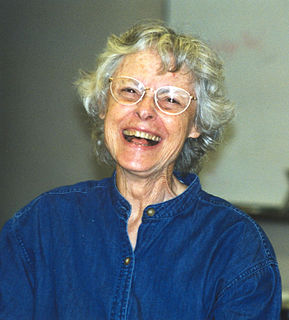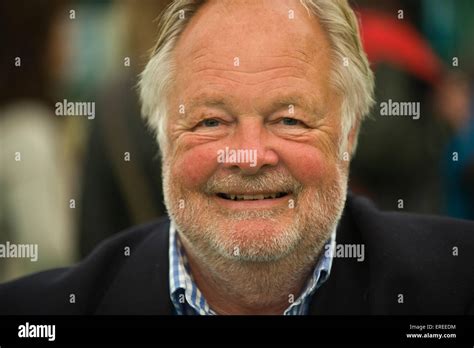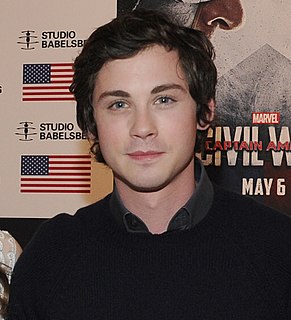A Quote by Carol Emshwiller
Ah, but is it not the mind that is the real grace of Homo sapiens? All the things to think about! All the things to read and appreciate! All the arts! All the things of the spirit!
Related Quotes
The humanity and the humility, which are very different than the biological species homo sapiens. Humanity versus homo sapiens - very different things. We are biological creatures, we are animals, no doubt, but when you talk about "humando," you're talking about that particular kind of animals who are aware of their impending extinction, who have the capacity to be sensitive to catastrophe and disaster and calamity and profound crisis.
Someone has said it is better to appreciate the things you don't own than to own things you don't appreciate. I hope we will have with us a spirit of appreciation for all of the good things we enjoy, all the blessings that we have, many of which have come so easy to us, with very little effort on our part, and yet they are very real and very choice and are truly rich blessings.
The function of education has never been to free the mind and the spirit of man, but to bind them; and to the end that the mind and spirit of his children should never escape, Homo Sapiens has employed praise, ridicule, admonition, accusation, mutilation, and even torture to chain them to the culture pattern.
We became Homo sapiens not that long ago, from the scientific perspective, and we've retained a lot of our beast nature. We've done all these amazing things in terms of our knowledge base and technology, and now we're flying around and using the internet. But we're still very animalistic. So, I think about hierarchies. I think about evolution. I think about how we stack up, how we sit on top of each other. How we pray that we know what we're up to.
Some people don't have an open mind, and when I was traveling to different places I think I found it hard to enjoy things. You know, I come from a great city where there are lots of things happening, and if you end up in a small town where you don't have all those things you can feel the difference. Somewhere along the way, though, I think I learned to appreciate the difference.
I'm interested in taboos for certain reasons. They can dramatise things and they're scary, and they're important to think about. I'm also wary about the fact that if you don't proceed with caution and understand what you're doing, you understand these things are realities that you're dealing with, they're real things.
I'm not very eloquent about things like this, but I think that writing and photography go together. I don't mean that they are related arts, because they're not. But the person doing it, I think, learns from both things about accuracy of the eye, about observation, and about sympathy toward what is in front of you... It's about honesty, or truth telling, and a way to find it in yourself, how to need it and learn from it.





































